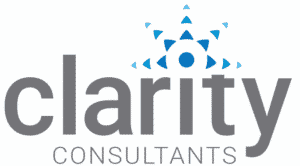Organizations face a delicate ethical balancing act of maximizing productivity while ensuring the well-being of their employees. This moral dilemma has gained prominence as businesses increasingly recognize the importance of nurturing a supportive work environment. It involves considerations related to the ethics of corporate training and the complexities of achieving a balance between productivity and the well-being of employees.
Achieving a balance between productivity and employee well-being is paramount for corporations. By embracing inclusive and flexible learning practices, prioritizing mental health, and fostering transparent communication, organizations can navigate these ethical dilemmas successfully. A harmonious approach to corporate training enhances productivity and contributes to a positive workplace culture where employees thrive personally and professionally.
Let’s proactively implement inclusive and flexible corporate learning strategies, prioritizing employee well-being alongside productivity to create a more ethical and sustainable work environment. Contact us today!
The Drive for Productivity
Productivity is a cornerstone of organizational success, driving efficiency, innovation, and competitiveness. The pressure to deliver tangible results often leads to a focus on measurable outcomes, such as increased job performance and enhanced skills. However, this unrelenting pursuit of productivity can sometimes come at the expense of employee well-being.Ethical Considerations
Work-Life Balance
A primary ethical concern in corporate learning is the impact on work-life balance. While continuous learning can be beneficial, intensive training programs and demands for constant learning can infringe upon personal time, leading to burnout and stress. Organizations must consider how their training initiatives align with the need for employees to have a healthy work-life equilibrium.Inclusive Learning Opportunities
Another ethical consideration involves providing equal learning opportunities for all employees. Organizations must be vigilant against creating a divide between those who can afford to invest more time in training and those who cannot. This inequality may lead to disparities in career advancement and employee satisfaction.Mental Health and Well-Being
The mental health of employees should be a top priority. High-pressure environments, tight deadlines, and an overwhelming amount of information can contribute to stress and anxiety. Ethical corporate learning programs should incorporate mechanisms to support mental well-being, such as mindfulness practices and stress management resources.Transparency and Communication
Open communication is fundamental to an ethical corporate environment. Employers must be transparent about the expectations associated with training programs, ensuring that employees are fully aware of the time commitments and potential impacts on their daily responsibilities. Clear communication fosters trust and helps manage expectations.Strategies for Balancing Productivity and Well-Being
Flexible Learning Options
Provide employees with flexible learning options, allowing them equal access to training materials and content at their own pace. This accommodates diverse learning styles and enables individuals to balance their professional development with other responsibilities.Wellness Programs
Integrate wellness programs into corporate learning initiatives. These programs can include resources for stress management, mindfulness, and overall mental health support. By nurturing the well-being of employees, organizations can enhance both productivity and job satisfaction.Regular Feedback Mechanisms
Implement regular feedback mechanisms to assess the impact of training programs on employee well-being. Soliciting employee feedback allows organizations to make informed adjustments and demonstrates a commitment to continuous improvement.Achieving a balance between productivity and employee well-being is paramount for corporations. By embracing inclusive and flexible learning practices, prioritizing mental health, and fostering transparent communication, organizations can navigate these ethical dilemmas successfully. A harmonious approach to corporate training enhances productivity and contributes to a positive workplace culture where employees thrive personally and professionally.
Let’s proactively implement inclusive and flexible corporate learning strategies, prioritizing employee well-being alongside productivity to create a more ethical and sustainable work environment. Contact us today!
